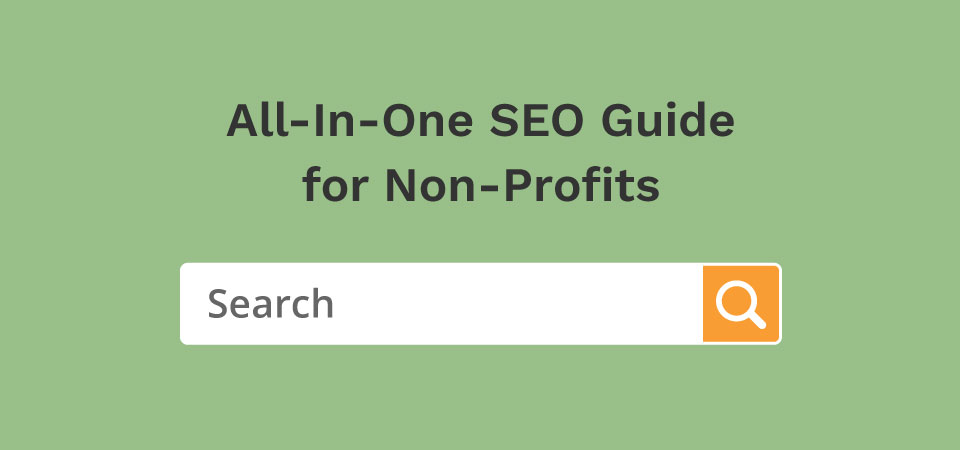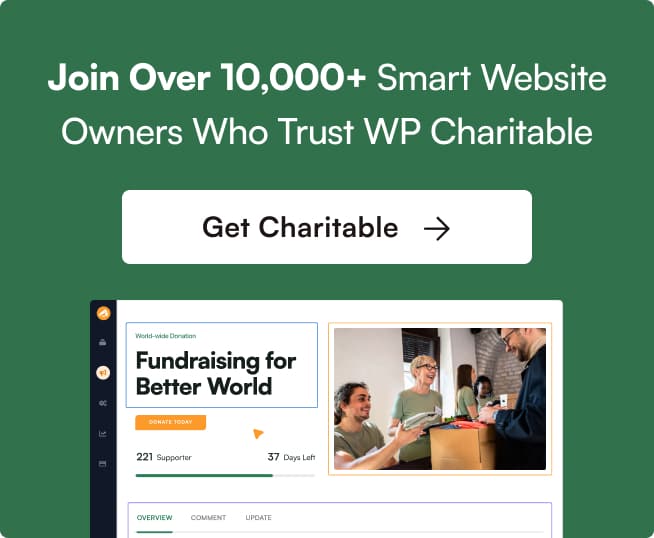SEO. What does it mean? How does it work? And how can your non-profit use it to increase both awareness and visibility of your mission?
What is SEO?
Search engines are everyone’s first port of call to search and find a relevant response to queries, fast. Remember, donors and supporters are constantly searching for ways to support on Google. What matters is that you’re at the top of those searches and ready to offer your charity to them!
Here, we’ll be touching more on how it all works, as well as how a good SEO ranking can increase your non-profit’s digital presence to raise awareness and attract more support.
Breaking SEO down
SEO (Search Engine Optimization) is the term used to describe gaining higher quantities and qualities of traffic from search engines to your page. These most relevant results sit at the top of your search engine results pages (SERPs), which ideally should show you high-quality content and provide strong matches to the search you’ve entered.
When we talk about improving your SEO ranking, the idea is to use a set of specific methods so that your site organically appears in the top of the SERPs. Essentially, SEO is all about communicating value to those search engines, making it as easy as possible for people to find you and discover what your non-profit is all about.
There are a couple of important factors to bear in mind when it comes to SEO and how well you rank on a result:
- One is Google’s algorithm, which uses crawlers to find and evaluate each of your web pages in order to bring data back to Google’s servers.
- The other is how long traffic actually stays on your page after finding you on a SERP, which will also be picked up by the algorithm. For example, if a user searching for “charities supporting cancer” finds you on the first-page results of Google, but then can’t find what they’re looking for within a few moments and heads back to the page results, Google’s algorithm will detect this and potentially de-rank or penalize your page for not offering valuable content to searchers.
Then, there are bigger and broader concepts to understand in order to appreciate SEO holistically.
Keywording
Keywords remain an important factor when it comes to SEO. These essentially refer to a particular phrase or word you want to use in your web page content, which helps Google identify what that page is about.
Here are a few tips related to selecting the best keywords for your organization or non-profit:
- Make a list of words and phrases that are related to you. What are you offering to supporters? Volunteer opportunities? Public outreach? Fundraisers?
- After this, set out more specific search terms that users might enter to find your organization. So, for example, if your organization protects wildlife, you can think of keywords/search queries around:
- What wildlife you protect
- What you offer that wildlife as part of your charity
- How supporters can get involved
If you’re looking for extra help tackling the above steps, then try Google’s Keyword Planner Tool. This will help to create a keyword offering based on terms you already have in mind.
User Experience (UX)
The user experience of your website simply means how someone experiences your website while they’re navigating through it. Is it easy-to-use, and does it give people enough of a reason to engage with your content? If they’ve come to you to find out what campaigns you’re running, can they clearly find them as soon as they hit your page?
Think of a potential donor coming to your website to discover the incredible work you’re doing. Is it easy to see where to make a donation? Can they see how to sign up to your newsletter and stay informed? If you have any peer-to-peer fundraisers active, is there a straightforward user journey to get onboarded?
Answering these questions honestly, trying to put yourself in the shoes of a potential supporter, will show if there are flaws in your site’s user experience. Then you can work on improving them, and hopefully seeing a difference in how you rank.
On-page SEO
Non-profits need to ensure their pages are set up in a way that’s easily recognizable by Google. “On-page SEO” simply means you have measures set up for Google to crawl your website through each page, in order to understand the content on your page and what keywords you should be ranking for.
Remember, the most important thing to note when thinking about on-page SEO is the user intent, and how your page serves that intent. If you want people to support or donate, make sure you have clear buttons and call-to-actions with that phrasing in there, such as “Donate Now”. Google’s algorithm will pick up these keywords on the page and your users will stay on your page for longer.
Here are some important on-page SEO terms you should be aware of.
Headings
When creating your website on Wordpress, make sure you use H1 and H2 headings for titles and subtitles. This will help readers easily locate important sections of your website, allow Google’s algorithm to select important context in your web pages and determine if it’s relevant to a user’s search query. If you’re creating content for a specific keyword, make sure it’s in the heading of your page to attract attention straight away.
Title Tag
A title tag is what appears as the clickable blue text in the SERPs. Title tags are pretty important when it comes to SEO. Make sure you use your keyword as close to the beginning of your title tag as possible and keep it under 60 characters to avoid having it cut off on the SERP.
Meta Description
Meta descriptions refer to the text appearing under the title tag (blue clickable text) in the SERPs. A well-written meta description can spike a user’s interest after reading the title tag and lead to better click-through rates, which will impact your organic rankings. See below for an example of the search entry “charities for mental health” against the first-page results showing both title tag and meta descriptions.

Remember, each webpage should have its own meta description to offer relevant information to each, showing them the valuable content they can expect to find on your page as well as a call-to-action to encourage them to do something there, whether that’s reading your blog section, signing up to take part in an initiative, or donating.
Natural language
Non-profits need to remember that SEO is also driven by natural language searches. This essentially is where people are using tools like Siri, Alexa and Google Now to search via voice queries, rather than typing them in. There are a few critical elements to think of here:
- Voice searches tend to include much more detail, such as: “where can I help out at a charity fundraiser this weekend?”
- This means they’re a lot easier to rank for because of that high level of detail, and competition is lower than that against simply searching for “charity fundraiser”
- Therefore, traffic from these keywords convert at a higher rate
So your SEO objective should not just be to rank for a few top keywords, but to also focus on a much larger number of natural language searches which are a little more specific.
Remember – high-quality content is vital
We mentioned earlier that a huge part of your ranking factor is based on how long you’re capturing traffic when a user hits your page after finding you on a SERP. Google’s priority is the user — they want to give people what they’re looking for, fast. So avoid complicated navigation or site bottlenecks — i.e. where users are left with nothing to do on your site.
Create quality content your supporters will be interested in, whether that’s a deep-dive into a recent campaign you did, or a video explaining how volunteers are helping your mission, or a blog post thanking your supporter for their donations.
Take a look at Greenpeace’s site below, which offers different page sections based on their campaigns and what they care about.

And remember…
It’ll take a while to see the effects of SEO – up to a few months. You have to work hard on ensuring you’re hitting the right keywords for your users, remembering to pay attention to your user experience (UX), on-page SEO and overall quality of content on your page. Most of all, stay abreast of non-profit trends and related searches, like what people are searching with natural language queries, so you can understand what your supporters are searching for and how your website can match those queries.
Enjoyed this article? Read this next:



Leave a Reply